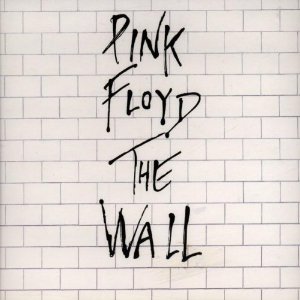If you're anything like me,
novels with magic do something happy and tingly to your insides. It's hard to
pinpoint, but I'm going to attempt to flesh out the "Why?" and
"How?" behind this magic satisfaction.
They say (I've always been fascinated by this phrase,
"They say..." I'd like to meet They, and give 'em a piece o' my
mind!) that imagination dies with adulthood. For many of us, that's true.
Unfortunately, adulthood requires a lot of growing up, mostly because of
responsibility. Most of us are so caught up in "the real" that we
forget how to use our imagination. But is our imagination really dead, or just
hibernating in a deep, dark cave?
Perhaps you're one of those people who, like me, pulls out the camera to slyly record your adolescent child playing with his toys. Why? It's cute, no doubt, but again, why? Because for that moment, your child has allowed himself to ignore the world around him. Social protocol, peer/sibling pressure, countless reprimands to grow up or act his age--all of them are gone. Your child has lost himself in his imagination.
Unfortunately, that sort of behavior is prohibited for us adults. Can you imagine your boss's reaction if s/he walked into your office and saw you sitting on the ground, legs crossed, feet bare, hosting a puppet show with your business socks? That's why I like having kids so much. They give me an excuse to act like a child in circumstances that would otherwise be considered unacceptable behavior.
Remember the movie, Hook, with Robin Williams? Remember how much you loved it? Have you
watched it again as an adult? If you have, you'll agree with me when I
say it still rocks! It's one of the very few movies that are still as good as I
remember them to be from my childhood. Why? Well, duh! A grownup gets to sword
fight, food fight, steal stuff, skateboard, live in a treehouse, kiss mermaids,
and fly! FLY! I still dream about flying! (and I don't mean in an airplane)
Robin Williams fulfills a hidden part of ourselves that, no matter how deeply
it's buried, wants to get out. I say let it! Hold on to your happy thought and
spring into the air!Perhaps you're one of those people who, like me, pulls out the camera to slyly record your adolescent child playing with his toys. Why? It's cute, no doubt, but again, why? Because for that moment, your child has allowed himself to ignore the world around him. Social protocol, peer/sibling pressure, countless reprimands to grow up or act his age--all of them are gone. Your child has lost himself in his imagination.
Unfortunately, that sort of behavior is prohibited for us adults. Can you imagine your boss's reaction if s/he walked into your office and saw you sitting on the ground, legs crossed, feet bare, hosting a puppet show with your business socks? That's why I like having kids so much. They give me an excuse to act like a child in circumstances that would otherwise be considered unacceptable behavior.
Remember the movie, Hook, with Robin Williams? Remember how much you loved it? Have you
Thus enter magic books. For the same reason we grownups love
Hook, we also love magic books. They let us do things that we can't do in the
real world. And that's why I love writing them! Have you ever wanted to control
what happens in your dreams? That's exactly what I get to do!
Guest post by Terron James
"Inspiring an unwavering passion for reading across
the globe, one community at a time."
Author of BEHOLDERS - www.TerronJames.com
Excelsior Academy -
Junior High English






 I first came across Philomena van Rijswijk when I read her novel The World as a Clockface, an extraordinary work full of magic, bizarre mayham, and twisted humour as it worked its way clockwise, around the mythical state of Esmania, past a small island to the east called Aotearoa, Antartica, Tierra del Feugo, Paraguay, the Cape of Africa, and back to the Antipodean mainland Incognita. I've never forgotten that wonderful book and have been waiting eagerly for more. So when Philomena offered me a copy of her new poetry book Bread of the Lost came out, I was excited. The book is very sensual, funny, erotic and intense. As with all of van Rijswijk's work, the metaphors are strikingly original and often extended into fantasy. It's a heady and fun collection which I'll be reviewing in-depth shortly. I'll also be interviewing Philomena at
I first came across Philomena van Rijswijk when I read her novel The World as a Clockface, an extraordinary work full of magic, bizarre mayham, and twisted humour as it worked its way clockwise, around the mythical state of Esmania, past a small island to the east called Aotearoa, Antartica, Tierra del Feugo, Paraguay, the Cape of Africa, and back to the Antipodean mainland Incognita. I've never forgotten that wonderful book and have been waiting eagerly for more. So when Philomena offered me a copy of her new poetry book Bread of the Lost came out, I was excited. The book is very sensual, funny, erotic and intense. As with all of van Rijswijk's work, the metaphors are strikingly original and often extended into fantasy. It's a heady and fun collection which I'll be reviewing in-depth shortly. I'll also be interviewing Philomena at 
